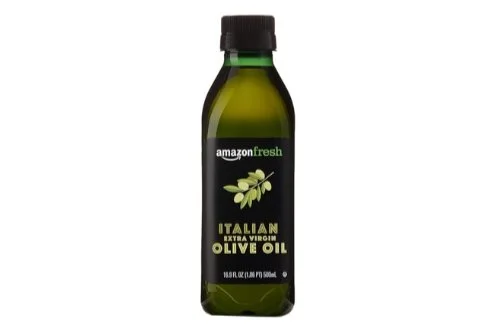The Carnivore Diet for Night Owls
Optimizing Late-Night Eating for Better Sleep
Individuals who identify as night owls often face unique challenges in maintaining optimal health, particularly when it comes to diet and sleep patterns. The carnivore diet, which focuses exclusively on animal products and eliminates other food groups, has gained attention as one dietary approach that night owls might consider. This eating plan consists mainly of meats, fish, eggs, and certain dairy products, championed by some for its simplicity and potential health benefits.
Adapting the carnivore diet to the lifestyle of a night owl requires an understanding of how eating habits can affect sleep patterns. Consuming meals that are high in protein and fat, which are prevalent in a carnivore diet, might influence the body's internal clock. Night owls typically experience peak alertness and energy levels during the evening, which can affect their meal timing and choice of foods. For those embracing a nocturnal lifestyle, aligning the carnivore diet with their natural rhythm could play a role in achieving a balance between their eating habits and the quality of their sleep.
To optimize health while following a carnivore diet, night owls must be mindful of their nutritional intake and meal timing. Starting the day with a nutrient-rich meal within the first waking hours can help stabilize metabolism and reduce the risk of overeating later at night. By prioritizing a variety of protein sources and considering the addition of certain low-lactose dairy options, these individuals can aim to meet their nutritional needs. The goal is to harmonize the carnivore diet with the night owl's sleep pattern to support overall well-being.
Understanding the Carnivore Diet
The carnivore diet centers around consuming exclusively animal-based products, it eliminates carbohydrates but is rich in protein and fats.
Fundamentals of Carnivore Eating
Key Components:
Animal Proteins: Beef, pork, poultry, fish
Animal Fats: Lard, tallow, butter
Eggs and Dairy: Mainly high-fat dairy like cheese
Exclusions:
Carbohydrates and Fiber: All plant-based foods
Fruits and Vegetables: None consumed
Processed Foods: Strict adherents eliminate these completely
The diet operates under the premise that human bodies might thrive on a high-protein, high-fat regimen, while simultaneously arguing for reduced or eliminated consumption of carbohydrates and fiber.
I highly recommend purchasing lard or tallow online for a convenient shopping experience!
Benefits and Risks
Benefits:
High Nutrient Foods: Meat and organs are nutrient-dense, supplying essential vitamins and minerals.
Protein-Rich: Supports muscle maintenance and growth.
Simple Food Choices: May simplify decision making around eating.
Risks:
Heart Disease: High in saturated fat, possibly elevating cholesterol levels.
Nutritional Deficiencies: Lack of fruits, vegetables, and whole grains could result in deficiencies in fiber and certain vitamins.
Long-Term Health Issues: Can increase risks for conditions like cancer and diabetes due to the absence of dietary fiber and excess consumption of red meat.
It encourages consumption of animal meats, which are dense in nutrients, but eschews the benefits of a diverse diet, including the potential protective effects against chronic diseases that come with eating a variety of plant-based foods.
The Biology of Night Owls
In the intricate interplay between diet, sleep patterns, and metabolic health, night owls face unique challenges and considerations due to their distinct circadian rhythms and chronotypes. Understanding these factors can help in managing their health and dietary habits effectively.
Circadian Rhythm and Chronotypes
Circadian rhythm refers to a person's internal clock that dictates sleep-wake patterns over a 24-hour cycle. Chronotype is the individual inclination toward the timing of sleep, categorizing people as morning-types, or "larks," and late-types, or "night owls." Night owls have a delayed sleep phase, tending to go to bed and wake up later than larks. This internal timing affects not only their sleep but also metabolism and energy levels throughout the day.
Impact on Diet Choices
Night owls' skewed circadian rhythms can influence their dietary choices. They often have meals at later times and may opt for high-energy foods to stay awake and satiated. Such patterns can disrupt normal metabolic processes and potentially lead to less optimal food choices. For example, they may consume less protein and potentially more sugar and fats, particularly late at night, which could contribute to weight gain and increased risk for metabolic disorders.
Managing Late-Night Cravings
Late-night cravings pose a significant challenge for night owls. They are more prone to eat large portions or choose calorie-dense, unhealthy foods due to the late hour. Planning is crucial; night owls can strive to prepare healthier options that are satisfying yet conducive to their overall well-being. Incorporating sufficient low-fat dairy, whole grains, and a variety of fruits and vegetables can help mitigate the negative impact of late-night eating on their metabolism and health.
Diet and Sleep Interconnectivity
The quality of sleep and dietary habits are tightly woven aspects of health, influencing each other in several ways. Proper balance between diet and sleep is crucial for weight management, mental health, and overall well-being.
How Food Intake Affects Sleep Patterns
Dietary intake, particularly the timing and type of nutrients consumed, can significantly alter sleep patterns. For instance, high-carbohydrate diets can lead to shorter sleep onset latency, meaning individuals might fall asleep faster. However, they may also experience alterations in sleep architecture, including changes in REM sleep. Protein-rich foods, containing amino acids like tryptophan, advance the production of serotonin and melatonin, which are essential for sleep regulation.
Conversely, heavy meals or foods high in fat may disrupt sleep by increasing the likelihood of indigestion and discomfort. Timing is also crucial; consuming caffeine or sugar close to bedtime can result in increased arousal and difficulty initiating sleep. Research suggests that meals rich in tryptophan can enhance sleep quality and next-day alertness, particularly in those with sleep disturbances.
Sleep Quality and Dietary Choices
Sleep quality directly influences dietary choices, often leading to a preference for high-calorie, sugary foods that can contribute to weight gain. Poor sleep increases the risk of overeating due to hormonal imbalances affecting hunger cues, such as elevated ghrelin and reduced leptin levels. Individuals who experience sleep disturbances are more likely to exhibit irregular eating patterns, like skipping breakfast, which has been associated with poor dietary habits and sleep quality.
Quality sleep is integral to the effective functioning of sleep medicine interventions and overall mental health maintenance. Sufficient rest can help in regulating mood and cognitive processes, which in turn may reduce the likelihood of stress-related eating behaviors.
The Carnivore Diet at Night
Adopting the carnivore diet as a night owl presents unique challenges and opportunities when it comes to meal planning and timing. It is crucial to understand how one's eating habits might align or conflict with nocturnal lifestyles.
Meal Planning Strategies
One must carefully plan their meals to sync with their sleep patterns. For night owls, this means scheduling meals later in the evening to align with their natural activity levels. They should consider lighter carnivore diet options such as chicken or fish to avoid potential discomfort or heaviness that might come from richer meats like red meat or beef late at night.
Schedule your main meal earlier in the evening to allow for digestion before sleep time, ideally before 9 PM.
Opt to have smaller, lighter meals if eating very late at night to ensure restful sleep.
Optimal Foods and Timing
Choosing the right foods and timing can enhance a night owl's adherence to the carnivore diet while also supporting better sleep quality. Foods that are easier to digest and lower in fat, like certain cuts of chicken, fish, and eggs, could be more suitable for late-night eating.
Chicken: Lighter options such as chicken breasts (What wine goes well with chicken breast?) are easily digested and can be a good choice for an evening meal.
Fish: Fatty fish like salmon provides omega-3 which can be beneficial for overall health without disrupting sleep.
Eggs: Boiled or poached eggs are a simpler protein source that can be eaten even late at night.
Timing: Pay attention to eating your last meal at least 2 hours before bedtime to aid digestion.
The key to mastering the carnivore diet at night lies in mindful meal planning and selecting optimal foods that agree with sleep patterns while nourishing the body.
Nutritional Considerations for Night Owls
For individuals who identify as night owls, tailoring their diet to balance macro and micronutrient intake, ensure adequate vitamins and minerals, and maintain proper hydration is important. These dietary adjustments are crucial to support their atypical sleep-wake cycles.
Macronutrients and Micronutrients
Protein: Night owls should aim to consume protein-rich foods throughout their active hours. These include lean meats, dairy, or plant-based alternatives like beans and lentils. A focus on protein can help regulate their energy levels and prevent late-night cravings for unhealthy snacks.
Optimal Protein Sources:
Chicken breast
Greek yogurt
Quinoa
Fat: The inclusion of healthy fats is necessary for night owls to support their overall health. Monounsaturated and polyunsaturated fats found in foods like salmon, avocados, and nuts can contribute to sustained energy levels and overall wellbeing.
Recommended Fat Sources:
Avocado
Walnuts
Olive oil
Night owls often consume more sucrose and saturated fats in the evening compared to early birds. It is critical for them to prioritize healthier fat options especially during their active night hours.
If you're looking for olive oil, buying it online is your best bet!
Vitamins and Minerals
Night owls may be at risk of Vitamin D deficiency due to reduced exposure to natural sunlight. Supplementation with Vitamin D3 can be beneficial to ensure they meet their daily requirements.
Essential Vitamins for Night Owls:
Vitamin D3 (supplementation if necessary)
Vitamin C (from citrus fruits, bell peppers)
Balanced intake of vitamins and minerals supports immune function and overall health, playing a pivotal role especially for those with late-night lifestyles.
When it comes to getting the best deals, buying vitamin D3 and vitamin C online is the way to go!
Hydration and Water Intake
Hydration is a key aspect of overall nutrition that can often be overlooked by night owls. They must consciously ensure adequate water intake to support metabolic processes and cognitive function during their waking hours.
Daily Water Intake Guideline:
Aim for at least 8-10 cups of water throughout the night.
It is common for night owls to consume beverages with sugar and caffeine, resulting in reduced consumption of water. Replacing these with water can help maintain hydration levels and prevent dehydration.
Health Implications
The carnivore diet's impact on individuals with nocturnal habits can affect various health domains. This section examines how a meat-centric eating pattern may influence weight management, physical activity levels, and the prevalence of common health concerns among night owls.
Weight Management
Individuals following a carnivore diet may find weight management challenging, especially if they are night owls. A diet that consists solely of animal products can be high in fats and protein, which are energy-dense nutrients. Night owls tend to consume more calories later in the day, potentially leading to weight gain if energy intake surpasses energy expenditure. Managing portion sizes and total caloric intake is crucial.
Considerations for Night Owls:
Monitor overall caloric intake, especially during late-night hours.
Be aware of potential for overeating due to increased energy at night.
Exercise and Physical Activity
Night owls on a carnivore diet must pay attention to exercise and physical activity. Regular exercise can counteract some negative effects of a high-fat diet, like elevated blood pressure and reduced insulin sensitivity. However, nocturnal patterns can disrupt the regularity and timing of physical activity.
Strategies for Incorporating Exercise:
Schedule exercise during the time of day when energy levels are highest.
Combine both cardio and strength training to support cardiovascular health and metabolic function.
Common Health Concerns
Night owls on a carnivore diet may be at a higher risk for certain health concerns. Cardiovascular disease and type 2 diabetes are associated with diets high in saturated fats and sedentary lifestyles.
Risks to Consider:
Cardiovascular Disease: Diets high in animal fats may contribute to higher cholesterol levels, a risk factor for heart disease.
Type 2 Diabetes: Insulin resistance is a concern due to potential imbalances in fat intake and a lack of physical activity.
Individuals should monitor blood pressure and blood sugar levels closely and consult with healthcare professionals to manage risks.
Lifestyle Adjustments
The adoption of a Carnivore Diet for individuals who identify as night owls may necessitate certain lifestyle adjustments. These adjustments aim to align eating habits with irregular sleep patterns while addressing challenges in social and professional environments.
Aligning Carnivore Diet with Daily Routine
Adhering to a Carnivore Diet requires planning to ensure that high-protein meals are available during waking hours, which are typically later for night owls. Meal timing is crucial, as eating close to bedtime can affect sleep quality. Night owls should consider scheduling their last meal at least 3 hours before sleep to minimize sleep disturbances. Additionally, light exposure plays a critical role in circadian rhythm. They should seek exposure to bright light during their active hours and limit light exposure after their last meal to signal to the body that it is time to wind down.
Physical Activity Levels: Incorporating physical exercise during their wakeful period can aid digestion and improve reaction times.
Alcohol and Smoking: Night owls should be mindful of the consumption of alcohol and tobacco, especially later in the day, as these substances can exacerbate sleep disorders and impact overall health.
Coping with Social and Professional Settings
Night owls may face challenges aligning their diet with social events that typically occur earlier in the evening. They should communicate their dietary preferences clearly when attending gatherings and, if possible, bring their own carnivore-friendly options.
Professional Environments: For those working night shifts, packing meals can ensure adherence to the diet and help maintain energy levels and productivity throughout the shift.
Stress Management: Balancing social, professional, and dietary needs can be stressful. Night owls should employ stress-reduction techniques such as deep breathing or meditation to support their overall lifestyle adjustments.
By systematically planning meals and navigating social and professional situations, individuals on a Carnivore Diet can maintain their routine effectively while mitigating potential negative impacts on their sleep patterns and well-being.
Risks and Precautions
Engaging in a carnivore diet while following a night owl sleep pattern requires careful attention to nutritional balance and health markers. This section explores the dietary risks and necessary precautions that individuals should consider.
Potential Deficiencies
The carnivore diet, which predominantly consists of animal products, carries a risk of certain nutrient deficiencies, particularly in vitamins and minerals commonly found in plant-based foods. Individuals may find themselves lacking in vitamins C and E, potassium, and fiber. Fiber is especially noted for its absence in animal products, which may impact digestive health. To mitigate these potential deficiencies, individuals should consider including a variety of animal-based sources rich in these nutrients, such as organ meats and bone broth for minerals.
Monitoring Health Status
Because a person's cholesterol levels may be influenced by the high intake of saturated fat, it is important for individuals on the carnivore diet to regularly monitor their health status, especially if they have a nocturnal lifestyle, which has been associated with an increased risk of metabolic disorders. Regular blood tests should be conducted to keep an eye on testosterone levels and other critical health markers. In this case, monitoring and adjusting the diet as needed is crucial for maintaining overall well-being.
Customizing the Diet for Night Owls
Adapting the carnivore diet for night owls requires a keen understanding of individual lifestyle and biological rhythms. A successful approach hinges on aligning meal times with the body's internal clock while ensuring nutrient-dense food intake for optimal health outcomes.
Personalization for Better Health Outcomes
Persons who identify as night owls often face challenges in aligning their eating habits to societal norms. The carnivore diet for these individuals must prioritize quality of food over quantity, focusing on highly nutritious, protein-rich meals that provide strength and enhance performance. Personalization of the diet involves:
Identifying the optimal eating window: Since night owls naturally eat later, they should schedule their main protein-centric meals when their energy levels are highest.
Being mindful of portion sizes: To prevent excessive calorie intake, especially when activity levels are lower at night, portion control is paramount.
Meal timing should take into account each person’s unique body clock to promote optimal health without disrupting sleep patterns.
Adapting to Individual Needs
For night owl individuals, the diet must be tailored to their unique circadian rhythms. Adjusting to a carnivore dietary plan necessitates:
Considering the individual's sleep-wake cycle: Aligning meal times to sync with natural peaks and troughs in energy and alertness.
Quality over quantity: Emphasizing consumption of high-quality animal products that can maintain satiety and support muscle maintenance and growth.
Night owls should aim for the highest quality of protein sources, which include eggs, fish, beef, and poultry. These foods support healthy individuals in maintaining lean body mass and overall health while accommodating a nocturnal lifestyle.
The Future of Carnivore Diet for Night Owls
The impact of the carnivore diet on night owls is becoming a focal point for research in sleep medicine and nutrition. Advancements may soon reveal optimized eating practices for those with nocturnal preferences.
Research and Developments
Researchers in sleep medicine are examining the carnivore diet through the lens of its effects on sleep quality and circadian rhythms. Studies in the Annals of Internal Medicine are exploring how high-protein, low-carbohydrate diets influence sleep architecture. They harbor a growing interest in uncovering the relationship between a meat-centric dietary regime and the onset and quality of sleep for individuals who keep late hours.
Impact on Sleep Onset: Initial findings suggest the need to evaluate the timing of meat consumption, as it may affect the ease of falling asleep for night owls.
Sleep Quality: Investigations focus on the depth and restorative stages of sleep, considering the dietary intake of animal protein and fat.
Emerging Trends in Sleep and Nutrition
As the carnivore diet's popularity endures, its intersection with sleep patterns is under scrutiny.
Nutrient Timing: Experts stress the importance of aligning meat consumption with the body's circadian clock, suggesting potential modifications for night owls.
Holistic Approaches: Nutritionists increasingly advocate for a balanced approach to the carnivore diet, integrating it with holistic lifestyle changes aimed at improving sleep.
Emerging dietary guidelines for night owls are expected to incorporate specific recommendations on protein intake timing to foster better synchronization with the body’s natural sleep-wake cycle.















